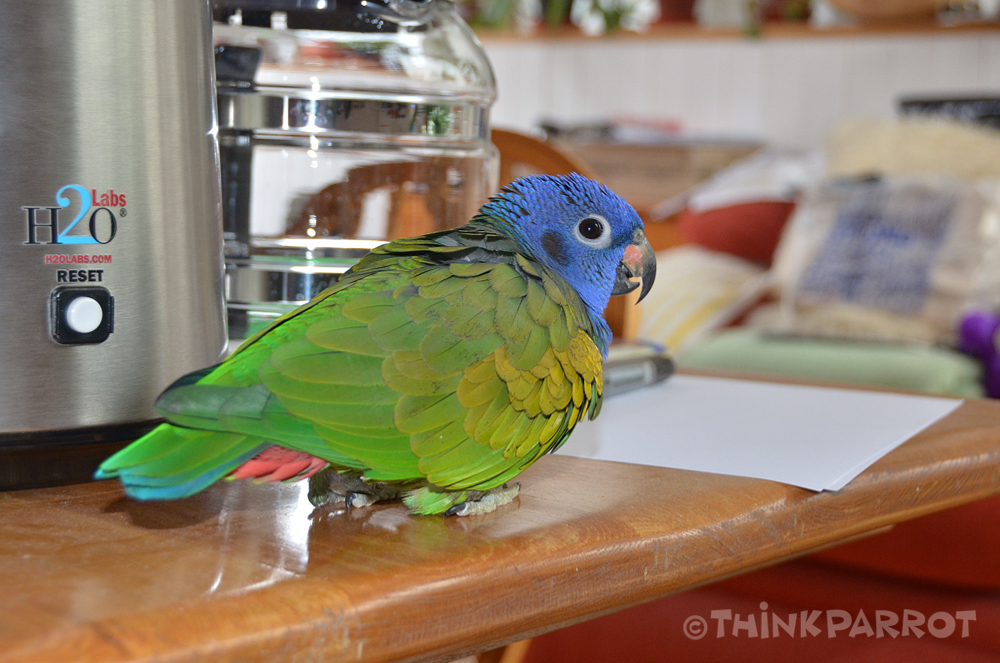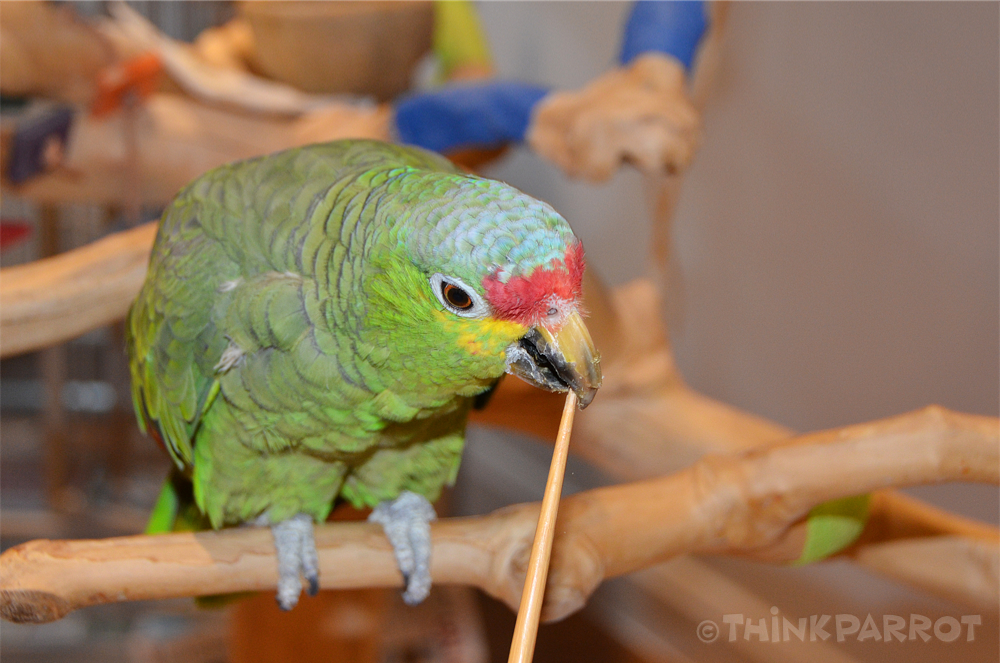We adopted a 25 y/o DYH from a local rescue about 6 mos. ago. Initially she (she is female- she was sexed by a vet) was shy but bonded to me fairly quickly, allowing me to handle her a lot and even eating from my mouth (don’t go “eww!”), “preening” my hair, etc. Anyway, she recently began to exhibit occasional aggressive behavior toward me for unknown reasons and actually bit me twice. She seems to prefer my wife to handle her for the time being, although she still talks to me from her cage. I’m still her primary caregiver. I’m at a loss as how to handle? For now, she’s restricted to her cage when she shows aggression but then allowed to come out as long as she is gentle. What else can I do?
-
Welcome to Avian Avenue! To view our forum with less advertisments please register with us.
Memberships are free and it will just take a moment. Click here
Handling erratic aggression in a DYH
- Thread starter ezarria63
- Start date
April
Joyriding the Neighborhood
Avenue Veteran
Celebirdy of the Month
Mayor of the Avenue
Avenue Spotlight Award
- Joined
- 3/21/10
- Messages
- 24,201
- Joined
- 12/6/20
- Messages
- 2,497
I've no experience of DYH, but they're one of the spicy three zons. I think those bites mean, she's trying to warn you about some potential threats ( according to her, of course) which cannot be deciphered by you. However, this bond between you two can't be encouraged as it will lead to frustration to her. I've heard, increasing sleep Hours and diet modification can decrease hormonal effects. Target training also helps. Don't worry, there are experienced people in this avenue. They'll guide you better than me.
Fuzzy
Rollerblading along the road
Avenue Veteran
Celebirdy of the Month
Mayor of the Avenue
Avenue Spotlight Award
 Emil! How lovely of you and your wife to adopt a rescue!
Emil! How lovely of you and your wife to adopt a rescue!  What's the bird's name?
What's the bird's name?Is she hormonal at the moment? Does she seek out dark places (boxes, cupboards, drawers, under the settee, etc), or is protective of her cage, or shred paper etc? Hormones might be a reason for the change in behaviour - eating from your mouth is what parrot mates do - again can increase hormones (plus the bacteria in human, cat and dog saliva can be dangerous to parrots). What is her diet like?
When exactly does she show you aggression? Is it for example when you ask her to step up? ie. what are you doing?
If you know what sets the stage for a bite (the antecedent to the behaviour), see if you can change it. With a bite, the behaviour has already happened and no amount of punishment (consequence) is going to change that but if you can change the cue (antecedent) the bite can be avoided. It will mean reading her body language more closely and avoiding her if it looks like she is uncomfortable. You might like to read this:

Aggression In Parrots | ThinkParrot
What is the purpose of aggressive behaviour in our parrots? How to address aggression using the least intrusive methods.
As Sumita said, try interacting with her in a different way, so that you can pair yourself with positive outcomes for her. Target training is a wonderful and easy first behaviour to teach. If she is aggressive outside her cage, begin teaching her inside the cage.

Target Training Your Parrot | ThinkParrot
Target training is a fantastic first behaviour to teach. It can be taught inside or outside the cage.
Clueless
Joyriding the Neighborhood
Avenue Veteran
Celebirdy of the Month
Mayor of the Avenue
Avenue Spotlight Award
Avenue Concierge
- Joined
- 11/3/12
- Messages
- 24,179
My amazon is a male, wild caught blue front that I've had for years. I can't recall the last bite I had but I certainly see opportunities for a bite, and avoid them, on a daily basis. Secret isn't a "cuddly" amazon by any stretch of the imagination.
Like others mentioned, you need to determine what happened BEFORE the bite. The good thing is that amazons show their emotions - watch their signs, feathers, eyes.... much better to AVOID the bites.
Like others mentioned, you need to determine what happened BEFORE the bite. The good thing is that amazons show their emotions - watch their signs, feathers, eyes.... much better to AVOID the bites.

